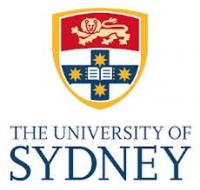






The Bachelor of Animal and Veterinary Bioscience is your passport to a career working with animals. Not only will you develop an excellent foundation in science, this flexible degree will give you the freedom to tailor your studies to suit your interests within the field of animal science. Over your four-year course, you will develop skills in applied animal health and disease; nutrition and feed technology; reproduction and assisted reproductive technologies; behaviour and welfare science; genetics and biotechnology. Because this course emphasises the practical and applied, you will be given lots of opportunity to get out in the real world to work with the animals you love. While your first three years will see you based at our Camperdown campus, you’ll be able to use our large animal teaching and research facilities at the University's farms and Camden campus. And, you’ll do 60 days of professional development working with people in the industry. You can choose to work in businesses, rural properties, government departments, research and volunteer organisations both in Australia and overseas. Not only will this give you a taste of the many career options available, it will set you up with industry contacts that will prove invaluable in your future.
| Number | Duration |
|---|---|
| 4 | year |
The Bachelor of Animal and Veterinary Bioscience provides an excellent path to careers in the animal industries, agribusiness, government, research and education. Animal scientists can work with a wide range of animals, from production to companion animals, native and exotic wildlife. Animal scientists have proven to be highly employable across a broad range of disciplines, working in capital cities, rural areas, and overseas. For example: animal biosecurity and quarantine (eg AQIS); assisted reproductive technologies and IVF (animal and human); intensive and extensive animal production enterprises; regulatory, advisory and policy-making positions; laboratory and field research in animal science (native and exotic wildlife, production and companion animals); veterinary pathology, histology, immunology and diagnostics; overseas aid in animal welfare and production; companion animal, equine and production animal nutrition, feed technology, veterinary and feed supplements; aquaculture and fish health; animal genomics and the genetic basis of disease; molecular biology (animal and human); secondary and tertiary education; animal breeding management; quality assurance and safety of food and feed products; animal health (eg Livestock Health and Pest Authorities); the pharmaceutical industry (human and veterinary); biotechnology (animal and microbial); biomedical research; media and journalism; Government departments including rural extension officers